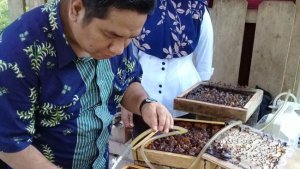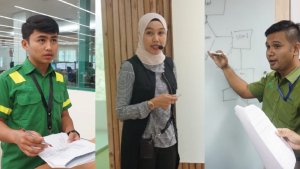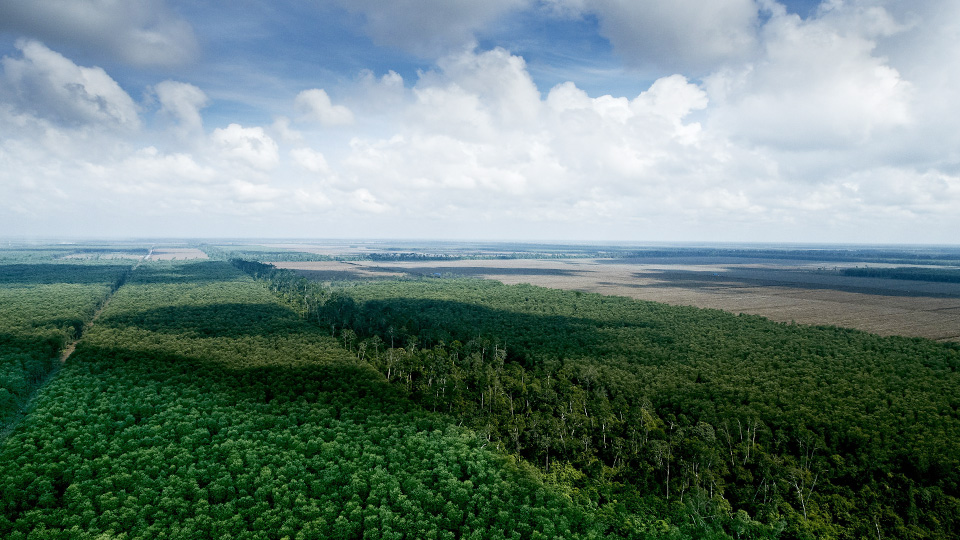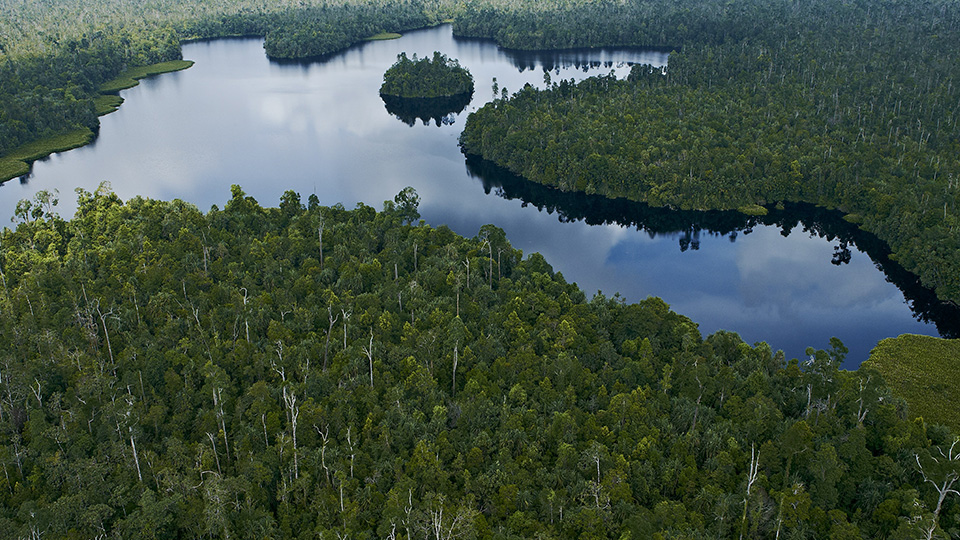“Why sustainability?” Why I joined APRIL’s Sustainability Professional Development Programme
- Details
"Why sustainability in APRIL?"
The question above was actually one of the questions asked to me during my second interview with a panel of Senior Managers from the Sustainability Team.

My friends also asked me "why sustainability?"
Of course, those two questions are completely different but in my story the answer to one led to the answer to the other.
My previous job at an Indonesian government ministry gave me a lot of exposure to the Millennium Development Goals, which evolved into the Sustainable Development Goals (SDGs). Back then it wasn't a personal reason that made me get involved in projects related to the SDGs: It was basically part of my job as a government employee, to make sure they would achieve the targets the government has committed to.
For me it was more about meeting the target and not so much providing understanding on "why are we doing this".
Short story: I resigned from my government job and went to pursue a Master's at the Lee Kuan Yew School of Public Policy, National University of Singapore. During my study in Singapore, I encountered sustainability in almost every course and case study, something you would expect from the fourth most sustainable city in the world based on the 2018 Sustainable Cities Index. As a student in a policy school I had to design policies that best capture the problem and the feasible solution, and what is more important is for those policies to address the real issue. I then realized sustainability is way beyond just meeting targets and goals of SDGs before the deadline, but it's also about how and why.
I have to admit that 'sustainability' is not a familiar concept for most Indonesians in daily life. Indonesia, with its almost 264 million people (World Bank, 2017), with 25.9 million still below the poverty line (World Bank, 2017), is a developing country that is still struggling to provide decent basic public services, such as education, health, and transportation. The people understandably put the economy as a priority. Very few are aware that economic growth should be balanced with social inclusion and environmental protection: the rest haven't yet understood what the consequences will be if the latter two don't follow.
I'm not trying to blame them, because I was one of them too. I'm just lucky I had opportunities to travel the world and see what other countries do, to see what the real issues in those countries are, to study in the most sustainable city in Asia, and to be able to participate in international conferences on sustainability issues. Those experiences allow me to have a good grasp of the scale of the problem and on the importance of sustainable development.
So why sustainability in APRIL?
It goes back to my days as a student in Singapore.
One day, we had this case study about the 2015 haze in Southeast Asia. The haze was caused by forest fires in Sumatra and Kalimantan. It affected Indonesia and Singapore badly. The Pollutants Standards Index (PSI) for both countries reached 2,000 (in Sumatra and Kalimantan) and 341 (Singapore) at that time, where a reading above 100 is classified as unhealthy and above 300 is hazardous. The purpose of the case study is to analyze the problem and propose a policy. As the Indonesian student in the class, of course I was put under the spotlight, being asked so many questions including what is the real cause. It was said that the fires were started by big companies who used slash-and-burn to clear land for palm oil and pulp and paper plantations. So I did my research to be able to answer my classmates' curiosity and mine too actually. And that's when I came across APRIL and its Sustainable Forest Management Policy (SFMP). I was surprised to know that APRIL already has a good policy in place.
As I was finishing my studies, I started looking for a job. Compared to when I graduated with my bachelor's degree, this time it took me a while to figure out what I wanted to do. I had reached a point where I didn’t want my job to just be a source of income, but to create an impact through my job too. I began to eliminate options one by one down to sustainability. The next question was where? At the same time APRIL launched their Sustainability Professional Development Program.
Now, why APRIL?
I feel that working in APRIL will support my personal agenda; to learn more about sustainability and to act on it so I can create an impact directly. And because APRIL's main operation is in Indonesia it strongly supports my other agenda which is to create impact for my own country, which still has many sustainability related issues. APRIL has programs and projects that really support sustainability. They're very committed to align their business with the SDGs, not just environmentally but also taking account of social and economic factors too for the communities. Of course there's a skeptical part of me that questioned whether they're really doing it for the sake of the bigger purpose or are just greenwashing.
I’m aware profit will always be on the agenda for APRIL, just like any other commercial business, but I learned that APRIL is aware that it needs to be a sustainable business to operate in the long run. That’s why they invest a lot in sustainability projects. And the Sustainability Professional Development Programme I joined shows how seriously they think about sustainability as part of their business.
Sustainability is not only about how to preserve the environment, it’s more than the plastic campaign or "go green" campaign you see on social media.
Sustainability is not only about poverty alleviation. It’s more than the "save the world from hunger" fundraising events.
Sustainability is not only about maintaining economic growth. It’s more than just "create more jobs" and "eliminate inequality" advertisements.
Sustainability is about all those things. But most importantly it is about us changing our behavior so the world we are living in now can sustain the global rising population economically, environmentally and socially in the most affordable way possible. I said affordable because the resources that support our lives are depleting. We can choose to make a difference now or wait until we have no more options left. I chose to do it now. What about you?

Ika Citra Marlia joined APRIL's Sustainability Professional Development Programme in 2018 after completing a Master's in Public Administration at the National University of Singapore's Lee Kuan Yew School of Public Policy. For more information on APRIL's Sustainability Professional Development Programme click here
More Articles






